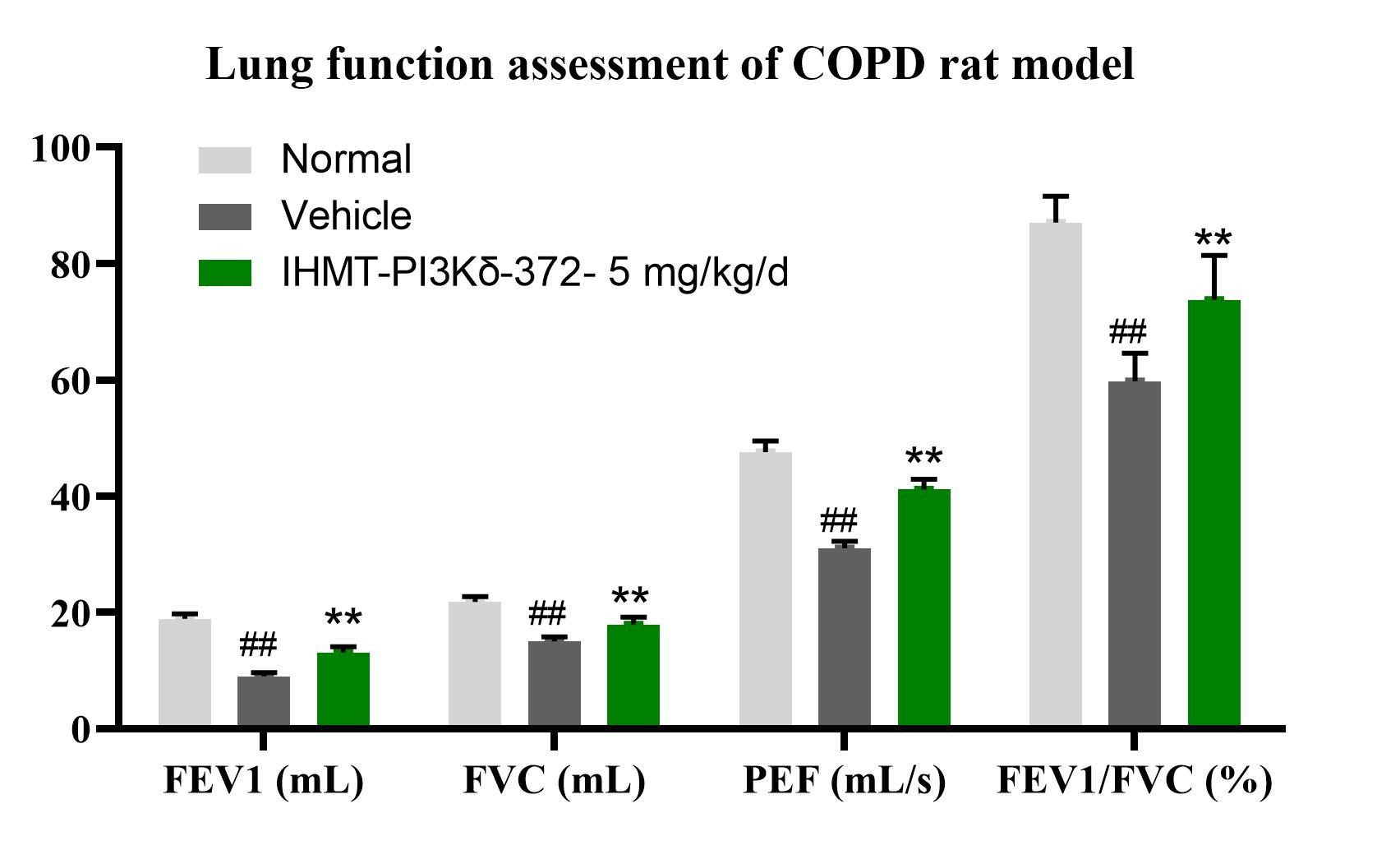Recently, a research team led by Prof. LIU Qingsong and LIU Jing from the Institute of Health & Medical Technology, Hefei Institutes of Physical Science (HFIPS) discovered a potent and selective PI3Kδ inhibitor IHMT-PI3Kδ-372, which exhibited anti- Chronic Obstructive Pulmonary Disease (COPD) efficacy in vivo.
In this study, the researchers adopted a fragment hybridization strategy and discovered a novel PI3Kδ inhibitor IHMT-PI3Kδ-372 through medicinal chemistry exploration. The compound showed high potency against PI3Kδ, and meanwhile exhibited high selectivity over other class I PI3Ks as well as a low risk of hERG-mediated cardiac toxicity. Notably, it displayed favorable pharmacokinetic properties for inhaled delivery and improved lung function in a rodent model of pulmonary inflammation. These results suggested that IHMT-PI3Kδ-372 might be a new potential therapeutic candidate for COPD.
COPD is a chronic progressive respiratory disease characterized by airflow limitation and associated with abnormal inflammatory response of the lung. In recent years, it is becoming a major health problem and the third cause of death worldwide. Although oral administration of PI3Kδ inhibitor is reported to exhibit adverse effects as an anti-cancer drug in the clinic, inhaled drug delivery for respiratory disease may result in a potential reduction or avoidance of systemic side effects by delivering drugs directly to the site of action.
With a fragment-hybrid approach, this study offered a potential therapeutic candidate for COPD.

In vivo efficacy evaluation of IHMT-PI3Kδ-372 in a lung inflammation rodent model (Image by LI Feng).
Contact:
ZHAO Weiwei
Hefei Institutes of Physical Science (http://english.hf.cas.cn/)
Email: annyzhao@ipp.ac.cn
 Tel: +86-551-65591206
Tel: +86-551-65591206
 Fax: +86-551-65591270
Fax: +86-551-65591270
 Emai: zhous@hfcas.ac.cn
Emai: zhous@hfcas.ac.cn
 350 Shushanhu Road
350 Shushanhu Road